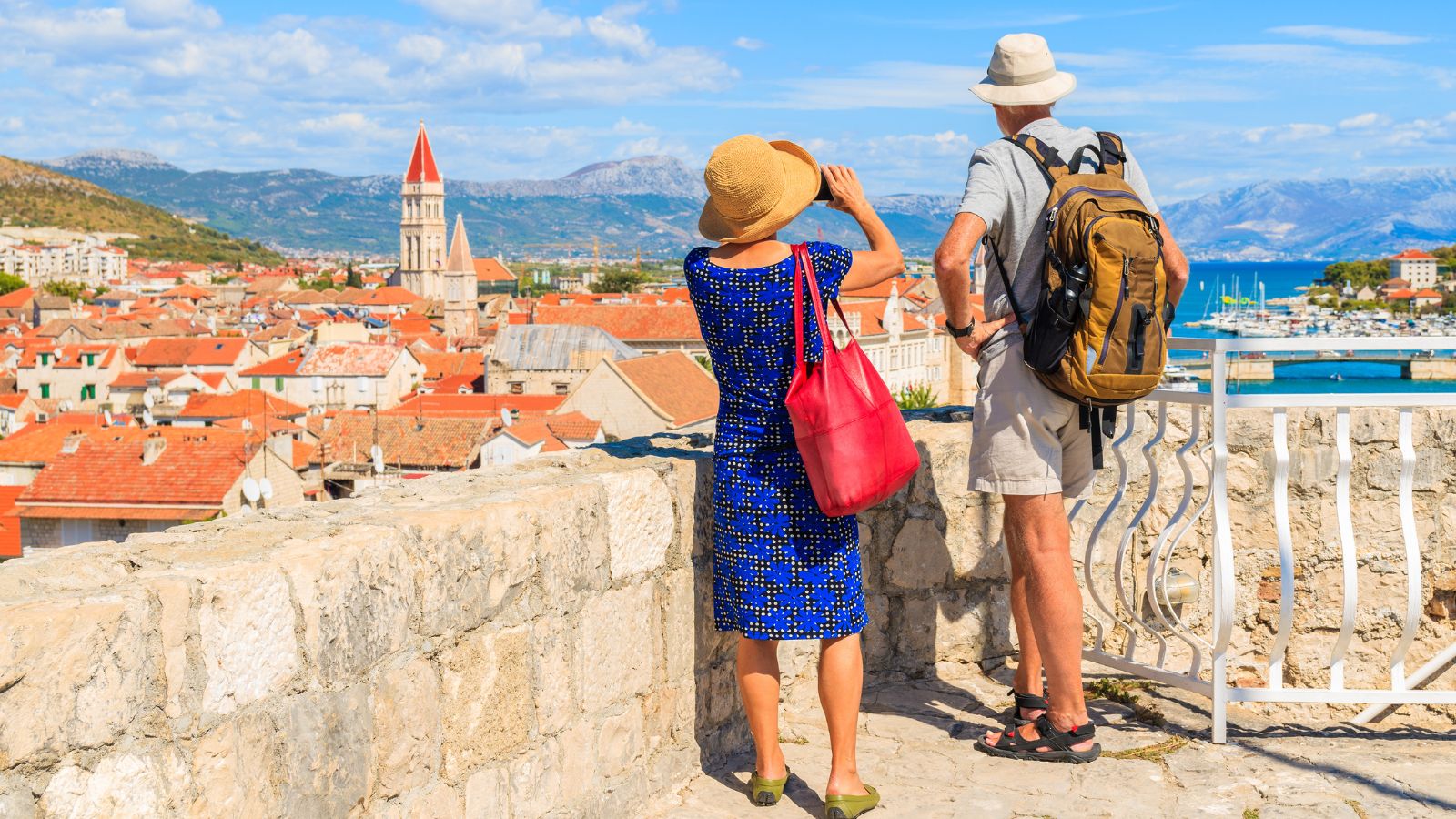Senior travel companies cater to a rapidly growing market segment with unique needs and preferences. This burgeoning industry offers a diverse range of services, from escorted tours and cruises to independent travel planning, each tailored to the specific desires and physical capabilities of older travelers. Understanding the demographics, preferences, and challenges within this sector is crucial for both companies operating within it and those considering entering the market.
This report delves into the various types of senior travel companies, their business models, marketing strategies, and the regulatory landscape they operate within. We will examine the services offered, customer experiences, and the future trends shaping this dynamic industry. The analysis will highlight both the opportunities and challenges faced by senior travel companies as they navigate the evolving needs of an aging population.
Types of Senior Travel Companies
The senior travel market is a diverse landscape, catering to a wide range of preferences and budgets. Understanding the different types of companies operating within this sector is crucial for seniors planning their next adventure, and for those considering investing in or working within the industry. These companies vary significantly in their offerings, target demographics, and business models.
Senior travel companies can be broadly categorized based on their primary service offerings and operational structures. This categorization helps travelers identify the type of company best suited to their needs and travel style. Factors such as desired level of independence, budget, and preferred travel activities will all influence the ideal choice.
Escorted Tour Operators
Escorted tour operators provide comprehensive travel packages that include pre-arranged itineraries, transportation, accommodation, and often meals and guided excursions. These tours offer a structured and hassle-free travel experience, ideal for seniors who prefer a more organized approach. Companies like Trafalgar Tours and Globus are well-known for their escorted tours specifically designed for mature travelers, often featuring slower paces and accessible accommodations.
Their business model relies on pre-booked packages and group dynamics, generating revenue from package sales and potentially optional excursions.
Cruise Lines
Cruise lines represent a significant segment of the senior travel market. Many cruise lines offer itineraries and amenities tailored to older travelers, such as accessible cabins, shore excursions designed for varying mobility levels, and onboard activities catering to diverse interests. Companies such as Oceania Cruises and Viking Ocean Cruises are known for their luxury offerings and focus on enriching experiences for older travelers.
Their business model revolves around ticket sales, onboard spending, and potential add-on services like shore excursions and spa treatments.
Independent Travel Agencies Specializing in Senior Travel
These agencies offer a more personalized approach, assisting seniors in planning customized itineraries based on their individual preferences and needs. They may specialize in certain destinations or travel styles, providing expert advice and support throughout the planning process. Unlike escorted tour operators, these agencies do not typically arrange transportation and accommodation directly; instead, they act as consultants, connecting seniors with appropriate providers and managing bookings.
Their business model is based on commissions earned from booking travel services with various providers.
River Cruise Lines
River cruises are gaining popularity among senior travelers due to their relaxed pace, intimate atmosphere, and convenient access to historical sites and charming towns along the river. Companies like Avalon Waterways and Viking River Cruises offer itineraries tailored to older travelers, with comfortable accommodations and onboard amenities designed for relaxation and enjoyment. Their business model is similar to ocean cruise lines, primarily based on ticket sales and onboard revenue.
Discover how elderly travel tours has transformed methods in this topic.
| Company Type | Strengths | Weaknesses | Business Model |
|---|---|---|---|
| Escorted Tour Operators | Organized, hassle-free, social interaction | Less flexibility, potentially higher cost | Package sales, optional excursions |
| Cruise Lines | All-inclusive, variety of amenities, diverse itineraries | Can be crowded, potential for seasickness | Ticket sales, onboard spending |
| Independent Agencies | Customization, personalized service, flexibility | Requires more planning, potentially higher cost for personalized services | Commissions from bookings |
| River Cruise Lines | Relaxed pace, intimate atmosphere, convenient access to sites | Limited itinerary options compared to ocean cruises, potential for limited accessibility on some vessels | Ticket sales, onboard spending |
Marketing and Sales Strategies: Senior Travel Companies

Senior travel companies employ a multifaceted approach to marketing and sales, recognizing the unique needs and preferences of their target demographic. Success hinges on understanding the motivations, concerns, and communication styles of older adults, tailoring strategies accordingly to build trust and resonate effectively. Effective marketing goes beyond simply advertising trips; it’s about building relationships and conveying a sense of security and value.
Marketing Channels for Senior Travelers
Reaching senior travelers requires a strategic blend of traditional and digital channels. While print media, such as travel magazines and newspapers, still hold relevance, particularly for reaching older demographics less comfortable with technology, online advertising and social media are increasingly crucial for wider reach and targeted campaigns. Email marketing, personalized to individual preferences and past travel history, proves highly effective in nurturing leads and driving bookings.
Direct mail campaigns, though potentially costly, can be impactful when personalized and targeted to specific interests. Crucially, partnerships with organizations catering to seniors, such as retirement communities or senior centers, offer direct access to a highly relevant audience.
Examples of Successful Marketing Campaigns
A successful campaign by a major cruise line targeted active seniors with an emphasis on enriching experiences and social interaction. The marketing materials showcased excursions emphasizing cultural immersion and opportunities for making new friends, rather than solely focusing on relaxation. Another effective campaign used testimonials from satisfied senior travelers, emphasizing the safety and comfort provided during their journeys.
This built trust and social proof, which is particularly influential among older adults considering travel. A smaller, specialized adventure tour company successfully used high-quality photography and videography on their website and social media, showcasing the stunning locations and highlighting the accessible nature of their itineraries, thus appealing to a health-conscious senior traveler.
Marketing Strategy Effectiveness, Senior travel companies
| Marketing Strategy | Effectiveness | Strengths | Weaknesses |
|---|---|---|---|
| Print Advertising (Magazines, Newspapers) | Moderate to High (depending on publication and targeting) | High credibility, trusted source for many seniors | Limited reach, higher cost per impression than digital |
| Online Advertising (Targeted Ads) | High | Precise targeting, measurable results, cost-effective | Requires technical expertise, potential for ad fatigue |
| Social Media Marketing (Facebook, Instagram) | Moderate to High (depending on platform and engagement) | Direct engagement with potential customers, visual storytelling | Requires consistent effort, algorithm changes can impact reach |
| Email Marketing | High | Personalized messaging, direct communication, high conversion rates | Requires building an email list, managing unsubscribes |
Regulation and Legal Aspects
The senior travel industry, while offering enriching experiences, operates within a complex regulatory landscape designed to protect vulnerable consumers. Understanding and adhering to these regulations is crucial for maintaining ethical practices and avoiding legal repercussions. This section details key legal considerations and the role of ethical conduct and travel insurance in safeguarding senior travelers.
Consumer Protection Laws
Numerous consumer protection laws at both national and international levels impact senior travel companies. These laws address issues such as misleading advertising, unfair contract terms, and the handling of complaints. For example, the US has the Older Americans Act, which indirectly protects seniors from fraud in the travel sector, while the EU has directives focusing on package travel regulations that offer significant consumer protection.
Non-compliance can result in hefty fines, reputational damage, and legal action from affected consumers. Companies must ensure all advertising materials accurately reflect the services offered and that contracts are clear, transparent, and easily understandable for senior citizens.
Accessibility Laws
Accessibility is a paramount concern for senior travelers, many of whom may have mobility limitations or disabilities. Laws such as the Americans with Disabilities Act (ADA) in the US mandate that businesses, including travel companies, provide reasonable accommodations to ensure equal access for individuals with disabilities. This extends to website accessibility, transportation arrangements, and accommodations. Failure to comply with accessibility laws can lead to legal challenges and significant financial penalties.
Companies must proactively identify and address accessibility needs in their service offerings and marketing materials.
Ethical Practices in Senior Travel
Ethical conduct is the cornerstone of a reputable senior travel company. Transparency in pricing, clear communication, and the provision of accurate information are essential elements of ethical practice. Exploiting the vulnerability of senior travelers through deceptive marketing or hidden fees is unacceptable and can lead to legal and ethical ramifications. Building trust through honesty and integrity is vital for long-term success and maintaining a positive reputation within the industry.
A commitment to ethical practices fosters customer loyalty and protects the integrity of the senior travel sector.
The Role of Travel Insurance
Travel insurance plays a critical role in protecting senior travelers from unforeseen circumstances. Policies often cover medical emergencies, trip cancellations, lost luggage, and other potential disruptions. While not legally mandated, responsible travel companies often advise or even require travel insurance, particularly for older travelers who may be at greater risk of health issues during their trips. The purchase of appropriate travel insurance demonstrates a commitment to the well-being and safety of senior clients, minimizing potential liability for the company in the event of unexpected events.
It also provides peace of mind for the traveler, allowing them to enjoy their trip without undue worry.
The senior travel market presents significant opportunities for growth and innovation, driven by an aging global population with increasing disposable income and a desire for enriching travel experiences. While challenges exist, such as adapting to changing demographics and addressing health concerns, forward-thinking companies are leveraging technology and focusing on personalized services to meet the evolving needs of this valuable customer base.
The future of senior travel promises a continued expansion of options, greater accessibility, and increasingly sophisticated travel solutions tailored to the unique requirements of older adventurers.


